Can China lead global civilisation?
Given China’s ambitions to lead global civilisation — as suggested by its Three Global Initiatives and Belt and Road Initiative — how should it seize this historic opportunity? In addition to siding with the progress of history and bold ideological innovations, the tougher challenge would be to avoid the trap of human nature, says US-based writer Lance Gore.
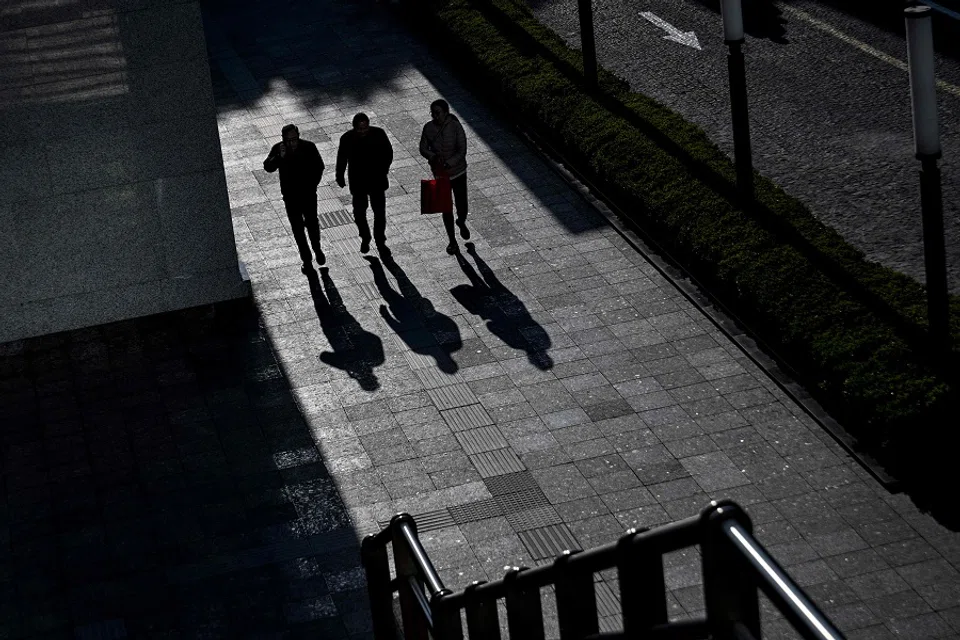
China has seen two qualitative quantum leaps in its strength since last winter, such that it now has unprecedented room to manoeuvre in its international strategy.
The first leap is marked by the growing indications of the Chinese military catching up with and, in some cases, overtaking its US counterpart with the support of high technology. The second is based on the fact that the US and its allies have failed to stop China’s technological advancement even after more than six years of embargo and suppression — China seems to have acquired a sustainable capacity for technological innovation based on its own talents and resources.
Shifting balance of power
The former development is reflected by the array of new weaponry that appeared at the Zhuhai Airshow in November last year (including the superior drone swarm and systematised warfare capabilities), the two sixth-generation fighter jets unveiled in December, as well as breakthroughs in aero-engines and electronic warfare.
The latter development is represented by the advent of DeepSeek and its resulting shock waves across the global artificial intelligence (AI) community, dramatic advances in robotics, and the progress in Chinese autonomy over chip technology. These have led China to declare confidently that it is ready to “fight any form of war” with the US.
After the maiden flights of the Chinese sixth-generation aircraft, the US Pacific Commander remarked that the US military’s technological advantage is gradually weakening as China continues to make breakthroughs in advanced weaponry, and so the two countries should coexist peacefully, and the US does not wish to start an arms race with China.
China has gained confidence from the situation, believing that even if the US and other Western countries shift their focus from Ukraine to China, it can manage the challenge due to its greater strength compared to Russia.
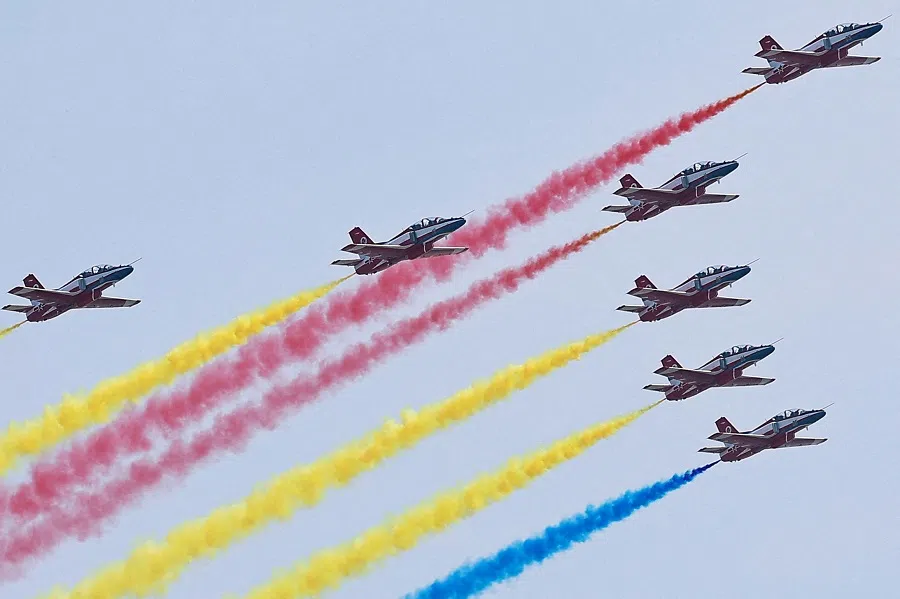
Wu Hailong, president of the China Public Diplomacy Association, pointed out that this was the first time an American general, tasked with dealing with China, expressed a desire to live in peace with China. Just as he who is closest to the furnace feels the heat first, the US military understands the shift in the balance of power most lucidly. Indeed, the new US defence secretary has mentioned more than once that in the multiple war game simulations conducted by the RAND Corporation and other relevant parties, “we lose every time to China”.
By themselves, the advances in these two areas may not be decisive in shifting the balance of power, but the trends they represent are strongly augmented by the current state of the Western countries — splintered and fraught with internal difficulties.
Even though Russia is denounced by almost the entire world for its invasion of Ukraine, the aggressor has withstood in confrontation with the Western camp for three long years, not only evading defeat, but even gaining ground in the battlefield recently.
China has gained confidence from the situation, believing that even if the US and other Western countries shift their focus from Ukraine to China, it can manage the challenge due to its greater strength compared to Russia. Additionally, efforts to suppress China’s rise do not carry the same moral imperative as those against Russia’s aggression, making it less likely for many to join in.
In the long view of history, the present shift in the balance of power may be epoch-making. It opens up new horizons for China’s international strategy. How the newfound power is used may lead to two very different paths of development for China and even culminate in two different world orders.
If Washington were to expand its territory by force, it would open the doors for other powers to settle territorial disputes the same way, and legitimise Moscow’s invasion. The return of the “jungle world” is actually good for a rising power like China.
The first path: jungle world
The first possible path forward can be seen as the default trajectory. It aligns with the current trend of deglobalisation and the apparent return to power politics, reminiscent of the “law of the jungle” in world affairs. This path is supported by millennia of historical precedent, where the logic of power politics is a common understanding. Both large and small countries have historically navigated it in their own ways, and even those without direct experience can rely on a well-established theoretical framework.
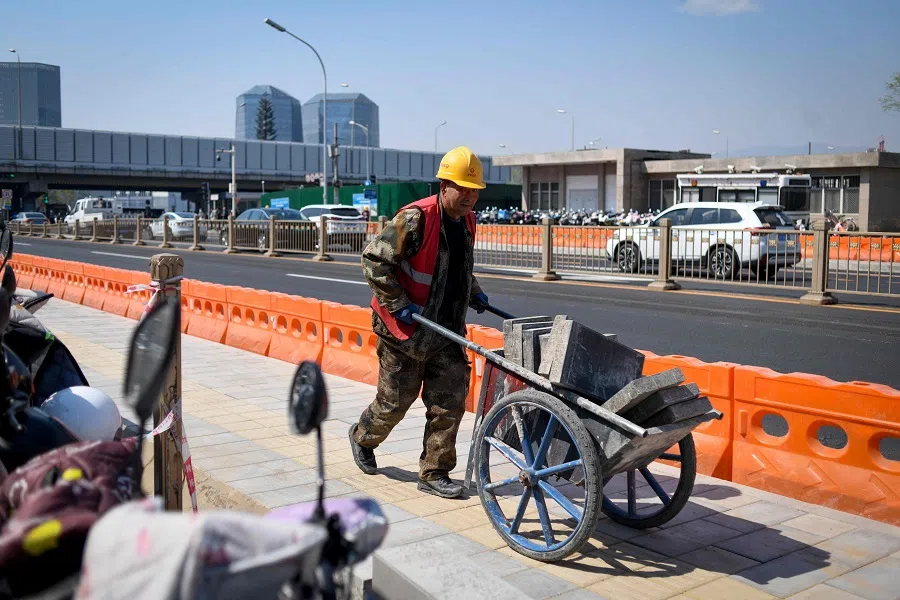
In this jungle world, the weak is for the strong to take. Upon taking office, US President Donald wasted no time speaking about the annexation of Canada and Greenland, reclaiming control over the Panama Canal, and declaring a tariff war on the whole world. And yet Trump’s blatant intimidation has drawn no strong reactions from the international community, a fact that speaks volumes.
The annexation of territories and plundering of resources by force are part of the Western colonial empires’ old playbook. As the old saying goes, “Truth exists within the range of cannons.” Russian President Vladimir Putin quipped, a flick of a bomber’s wings will achieve much more than lengthy talks and negotiations.
If Washington were to expand its territory by force, it would open the doors for other powers to settle territorial disputes the same way, and legitimise Moscow’s invasion. The return of the “jungle world” is actually good for a rising power like China.
Some mainland Chinese scholars are already discussing how China’s new strength could correct the “wrongs of history”. They believe that first and foremost, a military reunification with Taiwan is inevitable; the Ryukyu issue will be resolved with the final reckoning with Japan; the South China Sea will be even less of a problem, just as the Malacca dilemma will also be put to rest; the small country of 3.5 million people that is Outer Mongolia will be easy picking; the millions of square kilometres in the northeast and northwest that were ceded to Tsarist Russia should be returned to their rightful owner. The empty Siberia is easy prey, for Lake Baikal was where the detained diplomat Su Wu herded his sheep, all within the martial reach of the great Han dynasty.
While China follows a dual circulation strategy with a main focus on the domestic market, Trump’s America is going straight for single domestic circulation.

What is deterring NATO from intervening and sending troops to Ukraine is apprehension about Russia’s nuclear power. While China is not yet comparable to the US and Russia in terms of nuclear deterrence, it has enough of it and can soon catch up in terms of nuclear warhead count. Moreover, China’s conventional forces have strengthened remarkably and ground force is second to none. Chinese naval, aerial and missile capabilities are forcing the US out of the first island chain and extending into the second island chain. Being undefeatable militarily is a position China rarely finds itself in through all its history. This has opened up a whole wide world for China’s foreign relations.
However, it should be noted that there is one important reason why Russia remains undefeated so far: its economic structure has relatively low external dependence, such that Russia will not buckle no matter what sanctions the West throws at it.
In contrast, China’s external dependence is much higher. Even so, the world is moving in a general direction favourable for China. Deglobalisation means that nations are in retraction: the big players are turning inwards and the small ones are going regional. While China follows a dual circulation strategy with a main focus on the domestic market, Trump’s America is going straight for single domestic circulation.

Russia is certainly bound for autonomy and self-reliance. India has never been truly open, and the EU will become even more of a system unto itself. Other countries will be forced to strengthen the security of their supply chains, for it is better to rely on oneself than to rely on others.
Once being self-contained and self-sufficient becomes the order of the day, the role of moral principles in international relations diminishes. The jungle out there will thus grow denser, and China and the US will continue to stand out due to their significant market sizes, enhancing their soft power influence.
The second path: post-capitalist civilisation
Notwithstanding, the world today is a different place. The Peace of Westphalia of 1648 was fundamentally a product of the futility of the “jungle world”. A return to that world would be beneficial for the major powers in the short term, but detrimental for all countries in the long run. The global south, which had suffered profoundly from colonialism, would unite to resist the reversion to the 19th century.
Countries are now prioritising security over the enormous benefits of international trade and division of labour. However, people will soon miss the high-speed development and progress of the era of globalisation, because the reasons given for prioritising security are exaggerated or simply shadow chasing. What lies behind them are the politicians’ manipulations and media hype — it is human nature that is at work.
While countries are taking care of their own self-interests, they also have to deal with a growing number of common interests and public issues around the globe, i.e. climate change, AI, epidemics, distribution of resources (including food, clean water and fresh air), weapons of mass destruction, transboundary pollution, cybersecurity, international finance, security for shipping and so on.
Comparatively speaking, China stands a better chance leading the world towards post-capitalist civilisation.
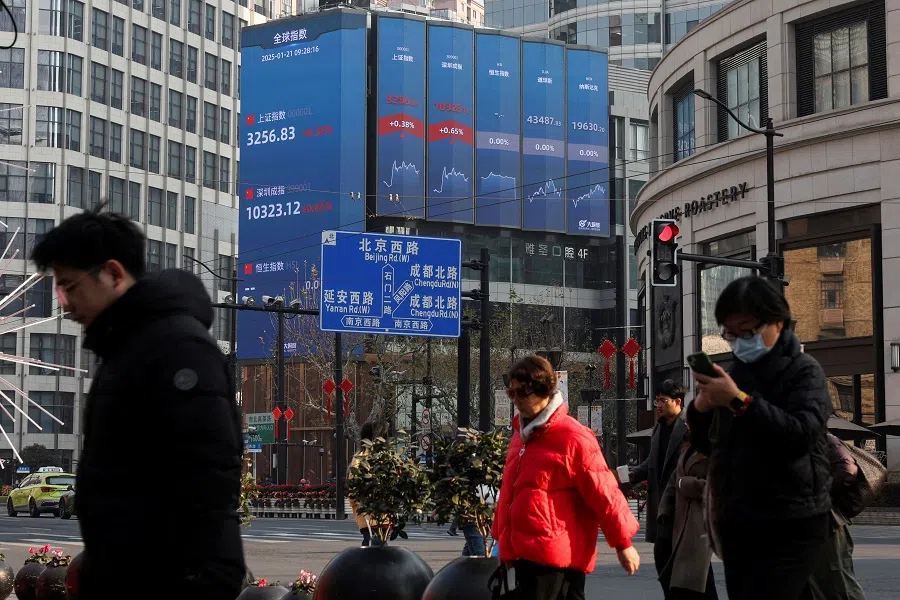
In addition, small, weak countries and non-governmental players are not going to sit around and let the major powers bully them. Not only will they speak out against unfair treatment, they will also have more and more opportunities and means to push back.
The magnificent achievements after World War II constitute a solid foundation for human civilisation to advance to a higher level. A return to the jungle world can only be a temporary reaction that provides no way out.
Given the tremendous possibilities contained in the civilisational achievements (especially the new technological revolution spearheaded by AI), including the enormous potential for mutual gains with cooperation, someone will inevitably come forth to push them forward. This historic responsibility needs to be shouldered by one or several countries with sufficient clout and strength. New thinking is also needed to generate rallying power and gather strength from the whole world for action.
State-based fascism has long been relegated to the annals of history. Universal Marxism, which aimed to create a new world, ultimately resulted in dictatorship and oppression and was defeated in the Cold War. Similarly, universal liberalism and neoliberalism have sharply declined after peaking during globalisation. Consequently, the new Cold War is little more than a futile struggle between two outdated ideologies.
Comparatively speaking, China stands a better chance leading the world towards post-capitalist civilisation. The US, the sole superpower, is regressing instead of looking forward. As for the other major countries, they are either stuck in old-fashioned thinking or lacking in strength.
In China’s case, much of Marxist orthodoxy has eroded due to setbacks during the Cold War, the shift away from a planned economy, the adoption of a market economy, and the influences of globalisation. As a relatively new entrant to capitalism and not yet deeply entrenched in liberal ideology, China is in a position to more readily liberate itself from the constraints of both ideological extremes.
Domestically, the CCP still struggles with ideological innovation, often oscillating between the two outdated forces previously mentioned and experiencing the drawbacks of both.
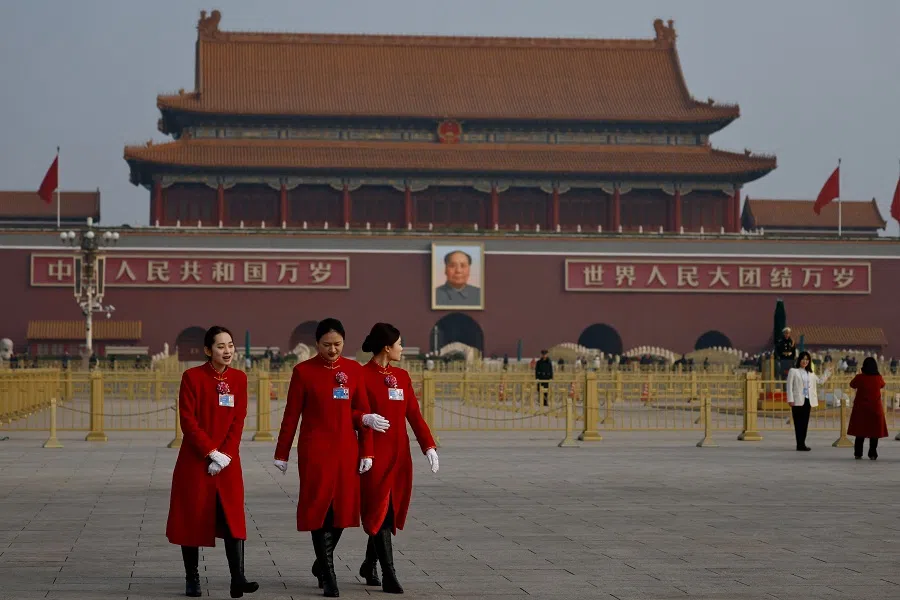
The Chinese Communist Party (CCP) has put in enormous effort towards ideological innovation. Notably, Chinese President Xi Jinping has, contrary to Mao Zedong, incorporated elements of traditional Chinese culture, and also made great progress in reconceptualising foreign relations.
Domestically, the CCP still struggles with ideological innovation, often oscillating between the two outdated forces previously mentioned and experiencing the drawbacks of both. For this reason, it is not yet ready to lead global civilisation to the next level, but it does possess the strength and potential to do so.
Key to ascending to the next level: reining in human nature
Given China’s ambitions to lead global civilisation — as suggested by its Three Global Initiatives and Belt and Road Initiative — how should it seize this historic opportunity? The US’s significant inward shift and the rise of anti-globalisation populism in the West are reshaping the post-war order, presenting China with a chance to define a role that is both acceptable and welcomed globally. Beyond aligning with historical progress and pioneering bold ideological innovations, the more challenging task will be to navigate the pitfalls of human nature.
Beneath the diverse national characters of different countries lies a universal human nature. In international politics, it is often emotion, rather than reason, that dominates. The language of emotions is straightforward: you either “like” or “dislike”; you are either “friend” or “foe”, “close” or “distant”. The structure of civilisation is fragile, and when it collapses, human behavior tends to revert to instinctive patterns.
For example, a declaration of readiness to “fight any form of war” is necessary to ensure other countries take China’s strength seriously. Such a stance can alter their habitual perceptions of China and prompt a change in their behaviour. China’s spectacular show of strength on both the military and the technological fronts around the time Trump took office was a timely way of telling the US not to play with fire.
Given human nature, the typical response in such a situation might be to display an aggressive, domineering spirit as a way to vent frustrations and boost self-esteem. While this reaction might be understandable for the average person, for decision-makers, it would reveal a lack of maturity and wisdom, displaying short-sightedness in their approach.
Thus, whichever of the two paths prevails, the winners will be the countries that have successfully avoided the pitfalls of human nature.

Psychologist Jonathan Haidt identifies self-esteem and moral idealism as key drivers behind humans’ deplorable acts. Wounded self-esteem often incites violence in everyday situations, whereas moral idealism is deeply connected to atrocities like massacres, genocide, war and terrorism.
Moral idealism is particularly dangerous because it fosters binary thinking, categorising others as simply “good” or “bad”, “friend” or “foe”. This mindset leads to narratives that demonise others, creating the “myth of pure evil”. Such thinking results in endless conflicts, and after much futile back-and-forth, we risk returning to a Westphalia-like state, no better than before. Reacting impulsively is not a viable path forward for civilisation.
Thus, whichever of the two paths prevails, the winners will be the countries that have successfully avoided the pitfalls of human nature. The purpose of striking back is not to vent feelings of unhappiness or beat the other party to the ground, but to turn the enemy into a friend, reap the long-term benefits of a win-win, and set in motion the upgrading of civilisation. Consciously doing so instead of succumbing to human weaknesses would build the foundation for us to forge a better world order and higher human civilisation.
This article was first published in Lianhe Zaobao as “实力中国的两个前途”.



![[Big read] When the Arctic opens, what happens to Singapore?](https://cassette.sphdigital.com.sg/image/thinkchina/da65edebca34645c711c55e83e9877109b3c53847ebb1305573974651df1d13a)

![[Video] George Yeo: America’s deep pain — and why China won’t colonise](https://cassette.sphdigital.com.sg/image/thinkchina/15083e45d96c12390bdea6af2daf19fd9fcd875aa44a0f92796f34e3dad561cc)